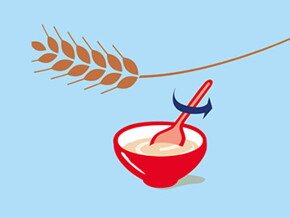
Child Bump On The Head
How To Handle Head Bumps?
IMPORTANT NOTICE: The World Health Organization (WHO) recommends exclusive breastfeeding for the first 6 months and continued breastfeeding for as long as possible. Growing up milks are formulated to meet nutrition needs of healthy young children older than 1 year and should not be fed to infants.
Despite all the precautions and attention you give your toddler, he can get different types of injuries: bruises, lesions, fractures and abscesses, for babies between 1 and 3 years of age move a lot, and may even take their mothers at a sudden many times, ending up with minor head injuries that do not require more than an ice pack, a bandage and lot of kisses.
But, what about the more serious types of injuries? How to deal with them and when to call the doctor? Read on the detailed answers in the following article.
Once your child bumps his head, try to control your nerves. Do not make any tough reaction that may impact your toddler so it would be hard on you to put him at ease afterwards. Then, follow on these steps:
- If your child’s wound is heavily bleeding, cover it with a neat cloth or bandage and put some direct pressure on it for couple of minutes. Do not panic if the bleeding takes much time to stop, for face and head wounds bleed more than any other kind of wound, and that does not mean that they are dangerous.
- If your child’s wound is minor, just wash it with lukewarm soapy water, then rub it with antibacterial ointment and cover it with bandage.
- If you notice a bump in your child’s head who doesn’t seem very upset, try to put on it an ice pack or a bag of frozen veggies to give him comfort and lessen the infection.
It is to be noted that the majority of head injuries are minor and treatable at home, without any medical intervention, unless the child shows the following symptoms:
- Open wound in the face (that often needs stitching).
- Persistent bleeding even after pressuring on the wound for 5 to 10 minutes.
- Non-stop crying and discomfort.
- Loosing conscience for few minutes.
- Having bumped the head against a very hard surface.
Then, you will have to call the doctor and take his advice. He will most probably ask you to keep your kid awake for the first hour post accident, while closely monitoring his behaviors to see if he’s acting weird or if he’s suffering from any paleness, nausea or disorder. He may even insist you bring him to the emergency room within the following 24 hours, if he’s vomiting, suffering from imbalance or respiratory disorder or severe irritation or headache or eye and speech problems, etc.
Read More: All About Childhood Anemia




















